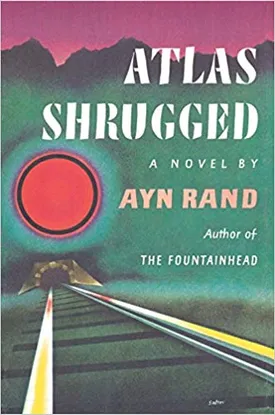Ayn Rand
Ayn Rand remains one of the most influential and controversial authors of the twentieth century. Before she burst onto the literary scene with her iconic novel, The Fountainhead, she was a philosophy student in Russia, living through the turbulent times of the Bolshevik Revolution. After emigrating to the United States, her works brought to life her unique philosophical system, objectivism, which emphasized individualism and rational self-interest as the primary criteria for morality.
Ayn Rand was born Alisa Zinov'yevna Rosenbaum on February 2, 1905, in St. Petersburg, Russia. Her father, Zinovy Rosenbaum, was a successful and skilled pharmacist, and Rand had very strong connections to her father, who she credited with teaching her the ideas of American individualism. Her mother was an educated, competent, capable woman with strong views — a characteristic Rand highly admired. After years of political unrest, Rand saw the Bolshevik Revolution in 1917 and experienced first-hand the brutality of its aftermath. This, along with her long-standing belief system, laid the foundations for her philosophy of capitalism.
In 1926, Rand left Russia and headed to the United States. After brief stays in Chicago and Hollywood, she eventually settled in New York City, where she was inspired to write her first major work, We the Living. The novel, published in 1936, depicts the struggle of living under a totalitarian regime, and Rand’s reasoning behind defending individualism can be seen in this novel. After the success of We the Living, Rand started work on what would become her iconic piece, The Fountainhead. This novel, published in 1943, is where Rand introduces her ideas of objectivism and her defense of capitalism to the world. Pitchforked into the international limelight, the novel gained the attention of both leftists, who saw Rand’s defense of the free market and individualism, and rightists, who said she had gone too far in her condemnation of government regulation.
Rand continued to shape the minds of the generations that followed her with her 1957 classic, Atlas Shrugged. This novel is a much more explicit defense of capitalism, and it is a testament to her passionate convictions. This novel emphasizes the importance of independent thought, individual rights, and the need for rationalism in a society. Her works, particularly these two novels, have become a major influence in American culture and have had an immense influence on the libertarian and conservative movements.
Throughout her life, Rand wrote and lectured extensively on her theories of rational self-interest in economics and politics, and was a fierce advocate for unfettered capitalism and limited government interference. Rand held no respect for religion or traditional morality, and her views were unpopular in her time. She rejected all forms of altruism, self-sacrifice, and mysticism, and was adamant that rational thought was the only proper method for gaining knowledge.
Rand’s legacy is still a powerful force in western culture and in the world of literature. Her works remain hugely popular and relevant today, having left an indelible impact upon generations of readers. True to her beliefs, Rand practiced what she preached, rejecting all forms of charity and selflessness in life and instead encouraging individuals to pursue their own interests above all else. It is no wonder, then, that she has achieved a type of immortality, inspiring readers to reflect on the exhilarating potential of rational thought, of independence, and free will juxtaposed against an increasingly totalitarian world.


